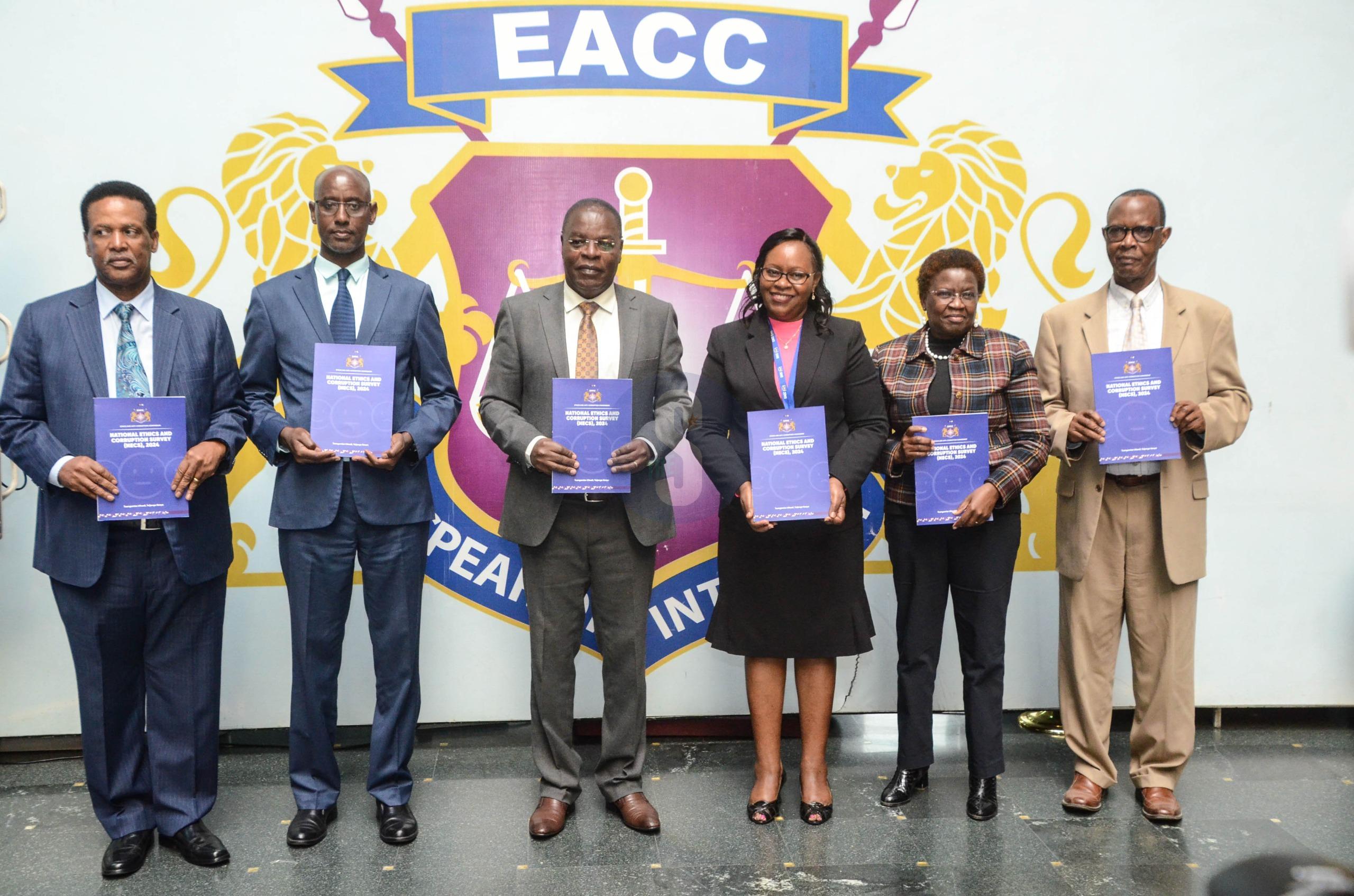

The Ethics and Anti-Corruption Commission (EACC) has said
that unemployment and corruption rank at the top two major problems Kenya is
facing today.
This is according to the National Ethics and Corruption
Survey 2024, which was launched on Tuesday placing unemployment at 49.1 per cent
and graft at 44.6 per cent.
The survey further lists Poverty and high cost of living as
the third and fourth major problems at 32.3 per cent 29.9 per cent, while
inadequate heath care stood fifth at 17.4 per cent.
Poor infrastructure followed at 12.4 per cent, poor leadership at
11.8 per cent, Insecurity 9.4 per cent and inadequate education facilities at 5.5 per cent.
Misappropriation of devolved funds 5.1 per cent, Inflation and unfavourable
economic conditions 4.8 per cent, tribalism and negative ethnicity 4.6 per cent, Discrimination
3.8 per cent, and Lack of clean, safe water and irrigation water 3.8 per cent.
Political instability 3.5 per cent, unfavourable climatic conditions,
famine and hunger 3.2 per cent, lack of markets and inputs for agricultural products
2.3 per cent and diseases such as HIV/AIDS 2.2 per cent.
Land conflicts also contribute to major problems of the
country at 2.1 per cent, drug abuse 1.2 per cent, Lack of unity 1.1 per cent, clean environment 0.6 per cent,
child labour 0.3 per cent, and Industrial unrest (strikes) 0.3 per cent.
Other issues account for 3 per cent.
The survey also listed giving of bribes is the most common
form of corruption witnessed in public offices, followed by receiving of
bribes, favouritism, and abuse of office.
The other forms include tribalism and nepotism, and
embezzlement of public funds, a survey by the Ethics and Anti-Corruption
Commission showed.
It said the national average bribe paid by Kenyans more than
halved in 2024 compared to the previous year, but the number of citizens asked
to pay bribes has increased significantly.
The survey further noted that Kenyans are more likely to
encounter unethical practices and corruption in the Ministry of Interior and
National Administration than in any other public institution.
The Ministry of Health ranked second with 19.7 per cent,
while the National Treasury followed at a distant third with 5.8 per cent.
Other public institutions that featured prominently include
the Ministry of Lands (5.6 per cent), Transport (3.9 per cent), and Education (2.6
per cent).











